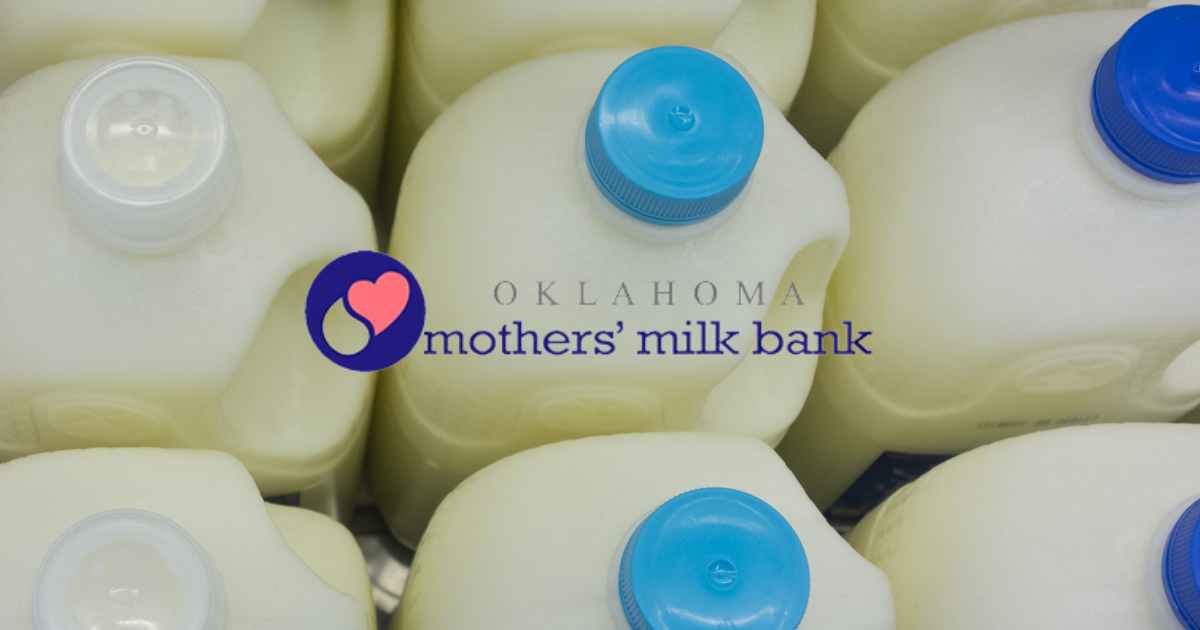Infants gain greatly from human breast milk’s wealth of health advantages. Unfortunately, not all moms have issues that make nursing impossible or are unable to produce enough milk. In these situations, milk banks are essential in helping newborns in need receive donated breast milk. The Oklahoma Mothers Milk Bank (OMMB) is one such well-known milk bank.
This page will cover everything you need to know about OMMB/MMB, including its goals, services, and impact on children’s and families well-being.
Table of Contents
- What is a Milk Bank?
- The Importance of Breast Milk for Infants
- The Mission of Oklahoma Mothers Milk Bank
- How Does ÓMMB Operate?
- Donating To ÓMMB: The Process and Requirements
- Screening and Testing of Donated Milk
- Pasteurization and Storage of Donated Milk
- Distributing Milk to Recipients
- Advantages of Breast Milk Donation
- Assisting Mothers Who Need It
- The Impact of ÓMMB
- Conclusion
- FAQ [ Frequently Asked Questions ]
- Q1: Can Anyone Donate Milk To ÓMMB?
- Q2: How Long Can Donated Breast Milk Be Stored?
- Q3: Is Donated Breast Milk Safe For Premature Babies?
- Q4: Are There Any Costs Associated With Receiving Milk Fom ÓMMB?
- Q5: How Can I Support The Work of ÓMMB?
What is a Milk Bank?
For babies who are unable to get breast milk from their biological mothers, donated human breast milk is collected, processed, and given out through milk banks, which are nonprofit organizations.
These banks are crucial in ensuring that infants obtain the essential nourishment and antibodies found in breast milk, especially premature babies and those with health issues.
The Importance of Breast Milk for Infants
Breast milk is nature’s perfect food for infants and young children.
Along with essential nutrients and growth-stimulating enzymes, it also contains defense systems like antibodies.
A child’s health over the long run is improved by breast milk, which also helps to protect them from diseases and reduces their likelihood of developing allergies.
The World Health Organisation (WHO) recommends that a newborn exclusively consume breast milk for the first six months of life.
The Mission of Oklahoma Mothers Milk Bank
Through the administration of donor human milk that has been properly pasteurized, a nonprofit group by the name of MMB is dedicated to improving the health and well-being of premature and medically sensitive children.
The mission of MMB is to ensure that all infants have access to the benefits of human milk, regardless of gestational age, medical conditions, or familial circumstances.
How Does ÓMMB Operate?
ÓMMB operates through a network of milk collection centers, where donors can drop off their expressed east milk.
Trained staff members handle the collection, screening, processing, and storage of donated milk following strict protocols and guidelines.
The milk is then pasteurized to eliminate any potential pathogens while retaining its nutritional value.
Donating To ÓMMB: The Process and Requirements
People must fulfill certain requirements in order to donate to MMB.
These include having adequate supplies of milk beyond what their own infant requires, not smoking, and abstaining from illicit drug use.
To assure the security and caliber of the donated milk, prospective donors go through a screening procedure that includes a thorough health history questionnaire and blood testing.
Screening and Testing of Donated Milk
Every donated milk batch undergoes a rigorous screening and testing process to ensure its safety.
This includes testing for bacteria, viruses, and drugs.
The only milk that meets the high safety and quality standards set by ÓMMB is accepted for processing and distribution.
Pasteurization and Storage of Donated Milk
After the screening process, the accepted milk is pasteurized using a specialized technique that ensures harmful bacteria and viruses are destroyed while preserving the milk’s essential nutrients.
The pasteurized milk is then stored in carefully controlled freezers until it is ready to be distributed.
Distributing Milk to Recipients
ÓMMB works closely with healthcare professionals, hospitals, and outpatient facilities to ensure that donated milk reaches the infants who need it the most.
Milk is distributed based on medical needs and the availability of supply.
Recipients receive pasteurized milk that is carefully matched to their baby’s requirements.
Advantages of Breast Milk Donation
Infants who are unable to receive breast milk from their moms can benefit greatly from donated breast milk.
It provides necessary nourishment, encourages normal growth and development, and lowers the danger of illnesses.
Breast milk donations are especially important for premature infants who may have extra health issues.
Assisting Mothers Who Need It
MMB offers assistance to women who are unable to breastfeed their own children because of illness, a lack of milk, or other factors.
By providing these moms with a dependable and secure source of donor milk, MMB enables them to give their children the greatest dietary and medical care.
The Impact of ÓMMB
Numerous infants’ and families’ lives have been significantly impacted by MMB since it was founded.
Healthcare professionals and parents alike have come to trust the organization because of its commitment to providing quality, safe, and compassionate treatment.
MMB continues to work towards bettering the health outcomes for Oklahoma’s most vulnerable newborns.
Conclusion
The Oklahoma Mothers Milk Bank (ÓMMB) plays a crucial role in providing donated breast milk to infants who are unable to receive milk from their own mothers.
Through their rigorous screening, testing, and pasteurization processes, ÓMMB ensures that the donated milk is safe and of high quality.
The organization’s mission to support and improve the health of premature and medically fragile infants has a lasting impact on the lives of many families
FAQ [ Frequently Asked Questions ]
Q1: Can Anyone Donate Milk To ÓMMB?
Ans: To donate milk to ÓMMB, individuals must meet specific criteria, including being in good general health and having a surplus of milk beyond their own baby’s needs. Prospective donors undergo a screening process to ensure the safety and quality of the donated milk.
Q2: How Long Can Donated Breast Milk Be Stored?
Ans: Donated breast milk can be stored in carefully controlled freezers for up to 12 months. However, it is usually distributed to recipients within a shorter timeframe to ensure optimal freshness and quality.
Q3: Is Donated Breast Milk Safe For Premature Babies?
Ans: Yes, donated breast milk is safe for premature babies. It provides essential nutrients and supports their growth and development. The pasteurization process ensures that the milk is free from harmful bacteria and viruses.
Q4: Are There Any Costs Associated With Receiving Milk Fom ÓMMB?
Ans: ÓMMB operates as a nonprofit organization and provides donated milk to recipients at no cost. This ensures that infants in need can access the benefits of human milk regardless of their family’s financial circumstances.
Q5: How Can I Support The Work of ÓMMB?
Ans: There are several ways to support the work of ÓMMB. You can consider making a financial donation, volunteering your time and skills, or spreading awareness about the importance of donor milk and the services provided by ÓMMB. Your support can make a significant difference in the lives of infants and families in need.
 Lifeyet News Lifeyet News
Lifeyet News Lifeyet News





